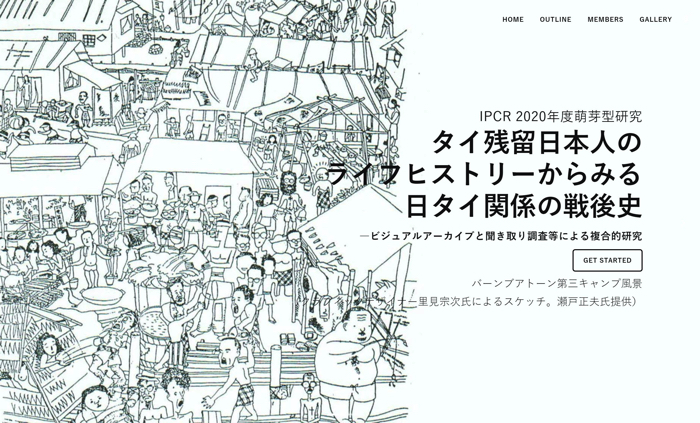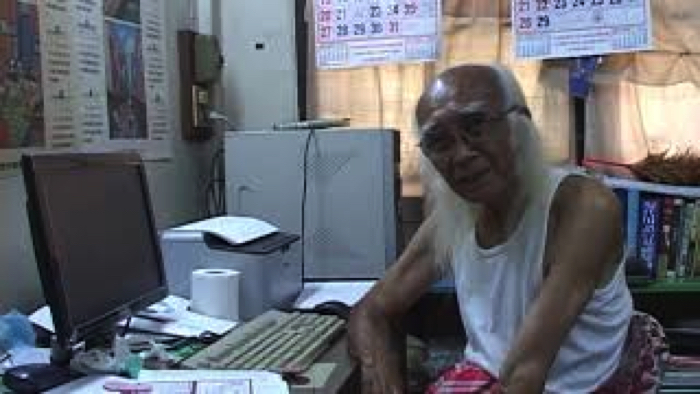- Project Leader : Naoi Riyo (Kyoto University, Center for Southeast Asia Studies)
- Collaborators : Endo Tamaki (Saitama University, Graduate School of Humanities and Social Sciences
- : Wang-Kanda Liulan (Doshisha University, Faculty of Global and Regional Studies)
- : Koizumi Junko (Kyoto University, Center for Southeast Asia Studies)
- : Sakurada Chie (Kyoto University, Graduate School of Asian and African Area Studies)
- : Saji Fumi (Japan River Front research Center)
- : Nonaka Akihiro (Waseda University, Faculty of Education and Integrated Arts and Sciences)
- : Hiramatsu Hideki (Kyoto University, Center for Southeast Asia Studies)
Outline of Research
This research focuses on the individual life histories of Japanese individuals who remained in Thailand after World War II. These include: those who went to Thailand before or during the war, Japanese descendants born and raised in Thailand, Japanese who remained in Thailand and eventually returned to Japan, and Japanese who still live in Thailand. It examines the relationship between Japan and Thailand from a new perspectives based on realtionships in the transforming post-war societies. Emphasis is placed on uncovering a range of experiences from diverse socio-economic, political, historical, and cultural contexts. In order to draw out the process of the historical formation of the post-war Japan–Thailand relationship, we will conduct interviews with individuals and their families and analyze the photographs they have taken. Visual archives of film, newspapers, and official documents stored in the Thai Parliament Library and Film Archive Museum will also be used.
Description
This study aims to explore hitherto unexamined aspects of the relationship between Thailand and Japan through multi-disciplinary research that considers the experiences of the remaining Japanese in Thailand. The research will create a documentary film that will include life history interviews and a collection of visual data, as well as other materials such as official documents. The research seeks to clarify how the remaining Japanese in Thailand lived their lives for more than 70 years after the war, and how relationships were formed between the Japanese and Thais and non-Thais in Thailand.
This research led by experts in the field of Thai studies will reveal new aspects of the relations between Japan and Thailand, two countries that were allies during the war and that maintained a unique friendship afterwards in political, economic, and historical contexts.
Documentation of the experiences of the remaining Japanese in Thailand, which have been buried in history and are little known, will provide a new perspective on World War II and for Thai (and Japanese) research on the post-war period. Summarizing the visual data and literature of the post-war period in order to convey the historical background and enhanced understandings of the remaining Japanese in Thailand to the next generation is also of significant importance.
Multi-disciplinary experts in Thai studies and Media studies will conduct research on the remaining Japanese in Thailand. Through this, we hope to create a new perspective on Thai studies, by emphasizing the relationship between Thai and Japanese people. In addition, by sharing the perspectives of the remaining Japanese in Thailand through both text and images (through, for example, organizing documentary film screenings), we will open up new public spaces that will pave a pathway toward a new academic paradigm.
 Launching the project website |
 Online documentary film screening (a scene from a film) |
